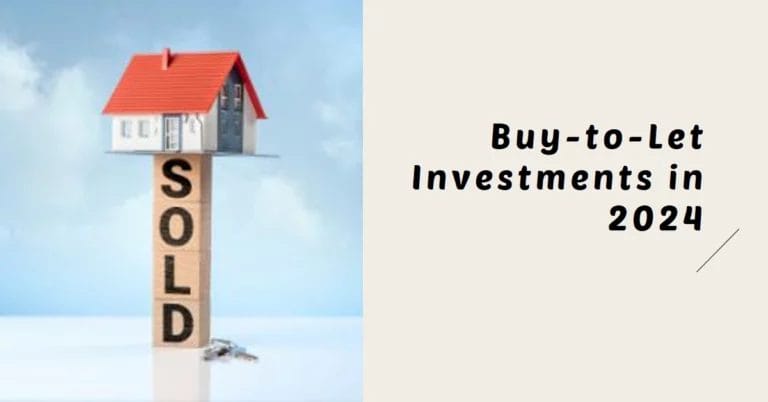Should I Fix My Mortgage In 2024? Pros And Cons Of Locking In Mortgage Rates
With mortgage rates on the rise, homeowners now face a key question: should I fix my mortgage or keep it variable? Both options have advantages. Fixing provides payment stability by locking in your rate. But a variable rate offers potential savings if rates fall. Assessing your budget, retirement plans, and risk appetite can help you decide the best option.
What Should You Do? Fix Your Mortgage Rate or Not
Despite rising rates, fixing your mortgage can still make sense during volatility. The Bank of England held interest rates at 5.25% in December, sparking hope we may have hit the peak.
Opting for a variable rate risks payment spikes if rates climb further. Fixing locks in your rate and payment for 2-5 years typically offers stability.
It shields you from additional hikes during your term. For first-time buyers, fixing provides peace of mind on a major purchase.
For remortgagers, it secures a rate during uncertainty. The risk is rates fall and you overpay. However, longer fixes allow you to build equity, improving future options.
With the potential peak reached, now may be an opportune time to secure a fixed rate. Weigh the pros and cons of your situation. Get expert guidance to decide if fixing suits you.
How Long Should I Fix My Mortgage Rate? Key Factors for UK Homeowners

When deciding how long to fix your mortgage rate in 2024, consider a few key factors.
First, how long do you plan on staying in your property? If it’s your forever home, fixing it for longer could make sense. You won’t need to worry about remortgaging fees down the line.
Additionally, assess your risk tolerance; some handle financial uncertainty better than others. Think about how rate fluctuations may impact you before deciding.
Additionally, examine the current mortgage landscape. Rates rose dramatically in 2023 but have since lowered. Still, they remain higher than typical.
Navigating these decisions alone can be challenging. Expert mortgage advice can be invaluable when weighing your fixing options. An advisor can suggest custom solutions you may not have considered.
The optimal fixed term balances your financial goals with stability. Don’t go it alone – get tailored guidance to make the best fixing decision for you.
Is Now the Best Time to Fix Your Mortgage Deal?
With interest rates rising steadily, many homeowners are eager to lock in fixed mortgage rates before they climb higher. However, there is some hesitance about whether now is the optimal time. Rates could potentially drop again in the future. So what is the best approach?
One strategy is to secure a fixed-rate mortgage offer now but delay completing it for 6 months or so. This allows you to lock in a competitive fixed rate, providing peace of mind. However, you can continue benefitting from your current low variable rate in the short term.
This hedging approach provides the stability of knowing you have a fixed rate ready to go. But if interest rates fall during the delay period, you could potentially find an even better deal elsewhere. You could then withdraw from the original offer and remortgage at the cheaper new rate instead.
There are some risks though. Most lenders will charge non-refundable valuation fees upfront when securing an offer, whether you complete or not. And they can technically withdraw the offer before you accept. However, these are risks you’d likely face even if fixed immediately.
If you cancel the original offer, you may incur exit charges from that lender and broker. New credit checks would likely be required as well when remortgaging elsewhere. So some sunk costs may be unavoidable.
Careful planning is key to minimizing risks. Consult an expert mortgage advisor to determine if this deferred completion approach suits your specific situation and goals. Their guidance can help ensure you make the optimal timing decision.
2 or 5 Years: Best Mortgage Deals

When remortgaging, a key decision is whether to choose a 2 or 5-year fixed rate deal. Presently, 5-year fixes offer marginally better rates, with forecasts anticipating increases over the next few years.
To determine the optimal term, weigh several factors:
- Rate predictions: Consider where rates may go, and your ability to pay if they climb. Remember forecasts are often inaccurate.
- Affordability: How will your income and expenses change over the next 2-5 years? Ensure you can afford potential rate hikes.
- Desire for certainty: Longer fixes provide payment stability. Shorter ones allow remortgaging sooner.
- Future plans: Will you move or need to port your mortgage within the fix period? How do early repayment charges impact this?
Those who think rates may fall sooner may lean towards 2-year deals, hoping to remortgage at a better rate later. But rates could also increase further.
5-year fixes offer long-term security, but there’s a risk of overpaying if rates drop. Also, factor in potentially hefty early repayment charges.
Carefully assess your unique situation and risk appetite. There is no one-size-fits-all fix term.
Should I Fix My Mortgage for 10 Years?
Fixing for 10 years provides maximum long-term security and stability, though rates are typically higher than shorter fixes. Rates are typically higher than shorter fixes. But if staying put for a decade or bracing for turbulence, it may suit you.
However, you risk overpaying if rates fall afterward. And exiting early can incur hefty early repayment charges, fees, or penalties.
Consider if your plans may change before 10 years is up. Factors like work, family or retirement could require moving. A lengthy fix reduces flexibility here.
Also, assess your budget’s sensitivity to rate fluctuations. Could you withstand further hikes on a variable or short-term fixed?
Weigh up your risk tolerance and future outlook before committing to a decade-long fix. It provides unmatched certainty but at the cost of adaptability.
What Are Interest Rates Now in 2024 and What Will Be in 2025?

Mortgage rates remain elevated currently, though they have fallen from 2022-2023 peaks. If inflation rises in the coming months, some further modest increases are possible early in 2024.
However, later in 2024 rates may decrease, as the Bank of England is expected to cut its base rate. They forecast rates dropping to 4.4% by Q2 2024, and further to 3.8% by Q2 2025.
This downward trend is expected to continue, with projections indicating a 3.6% base rate by 2026. Still, some fluctuations are inevitable depending on economic conditions.
Exactly how these base rate changes filter down to mortgage rates can vary by lender. Get expert guidance to understand the competitive fixed and variable rates available amid the current climate.
While forecasting models provide useful context, your personal financial goals should drive the mortgage decision. Speak to a mortgage advisor to determine the ideal rate and term to suit your unique needs.
What Are the Pros and Cons of a Longer Fixed-rate Mortgage?
With mortgage rates unstable, expert broker advice is invaluable for assessing options like longer-term fixes. They can explain comparisons to shorter fixes and variables.
In general, longer fixes like 5-10 years provide unmatched payment certainty but reduce flexibility:
Pros of fixed rate mortgage in 2024:
Locking in a longer fixed-rate mortgage can offer benefits:
- Protection from rate rises during your fixed period. Your rate stays put even if rates climb.
- Predictable payments enable reliable budgeting. Your mortgage costs remain steady.
- Chance to pay off more principal if rates increase. Your fixed payments apply more to the loan balance.
- Potentially lower fees over time. You remortgage less frequently, avoiding recurring arrangement fees.
- Insulation if lender criteria tighten. You already have an approved longer-term fixed rate locked in.
- Fewer credit checks are needed. Remortgaging less often means fewer applications on your credit file.
However, long fixes limit flexibility if your plans change. And you may pay more if rates drop significantly. Weigh up all factors carefully before committing.
Cons of fixing your mortgage:
- Interest rates may decrease during your fixed term, meaning you miss out on potential savings. Locking in today could mean overpaying if rates fall.
- Your fixed mortgage may not be portable if you move homes. Lenders may not let you transfer the fixed rate to a new property, forcing you to pay costly early repayment fees.
- Overpaying your fixed mortgage substantially can also trigger repayment charges. Lenders typically only allow 10% extra payments per year without fees. Exceeding this due to changed circumstances can be expensive.
Should I Move to My Lender’s Standard Variable Rate Mortgage and Wait?

Moving to your lender’s standard variable rate (SVR) mortgage and waiting for rates to fall further is risky. SVRs are usually higher than fixed rates.
The average 2-year fixed mortgage is currently 6.56%, while the average SVR is around 8.09%. With a £250,000 mortgage over 25 years, 6 months on the SVR could cost you £11,670 more than today’s fixed rates.
If rates fall and you can get a 5% 2-year fixed mortgage after 6 months, you’ll have paid £37,986 total after 2 years on the variable rate mortgage. The 2-year fixed today would be £38,664 over 2 years.
Rates may rise further in 6 months, potentially costing you even more. No one knows if rates will fall. Mortgage lenders factor in predictions when pricing fixed rates, but it’s uncertain.
Consider speaking to a mortgage broker about your options. Locking into a competitive fixed-rate mortgage deal today could save thousands over the SVR, providing payment security. Shopping around for the best fixed-rate mortgage for your needs is wise during uncertain times.
Still Unsure What is Right for You? Talk to Us
With so many options and uncertainty about where rates are headed, determining the best mortgage strategy can be tricky.
If you’re still unsure whether to fix it now or wait, speaking to a mortgage expert can provide guidance tailored to your unique financial situation.
Our experienced mortgage advisers are on hand to answer your questions, explain the pros and cons, and help you get a mortgage and find the most suitable mortgage product, whether fixed rate or tracker mortgage.
We’ll take the time to understand your goals, analyze the options, and ensure you make the right choice. With rates constantly moving, having an expert in your corner provides peace of mind.
Don’t struggle with this big decision alone – reach out and let us help determine the ideal mortgage approach for your needs. Our support is free with no obligation.






